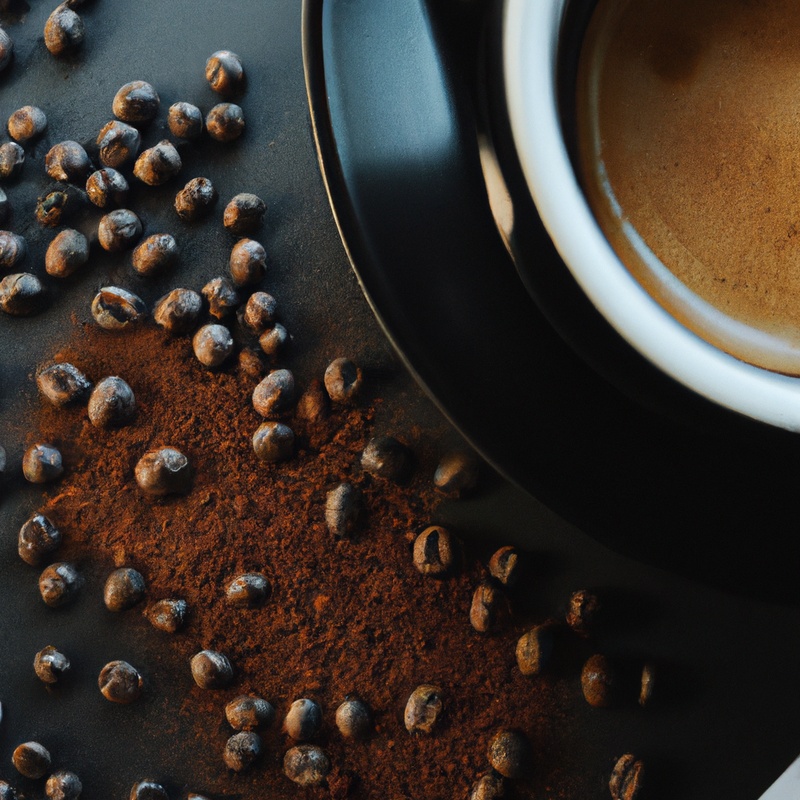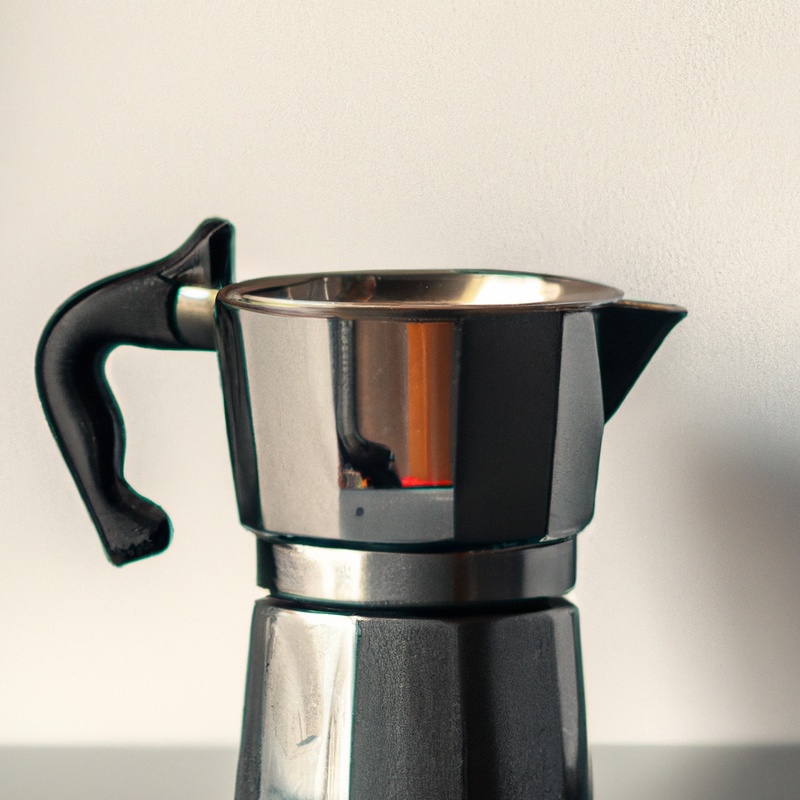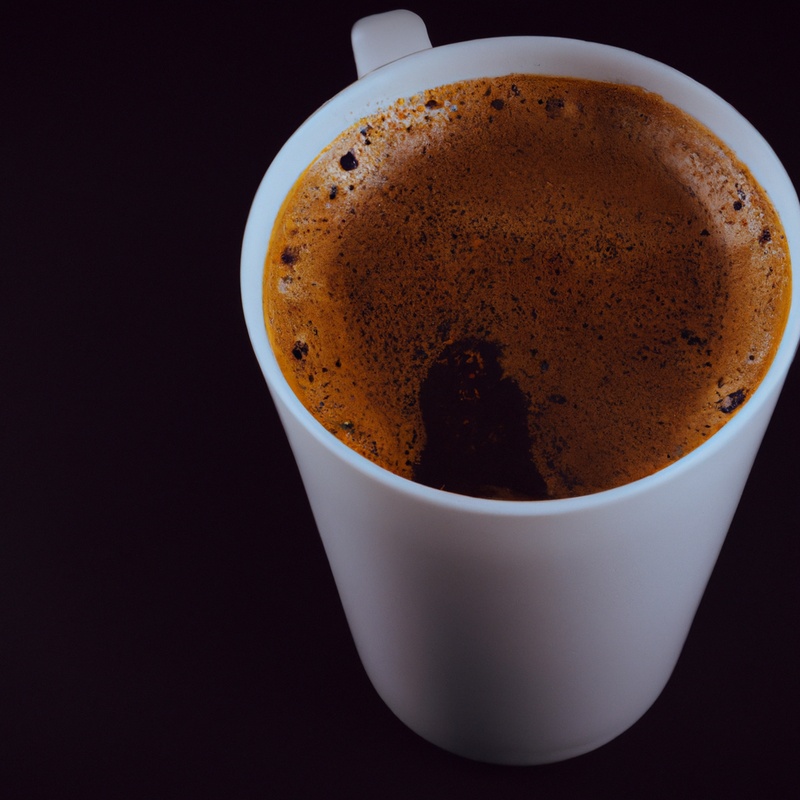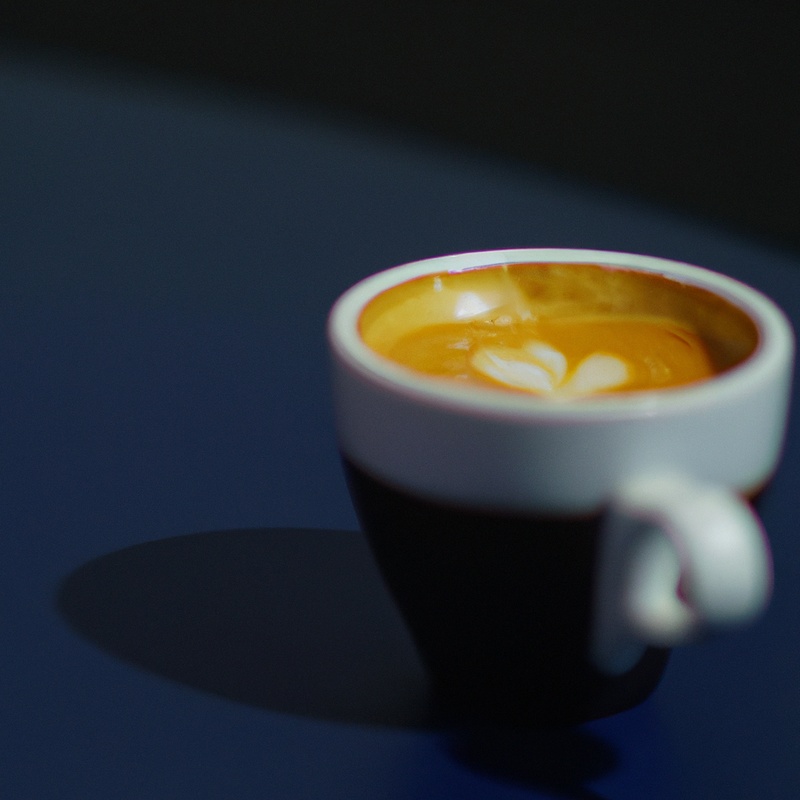Key Takeaways:
- Cold brew coffee was likely first invented by the Dutch in the 17th century.
- Toddy Coffee, an American company, popularized cold brew coffee in the 1960s.
- Cold brew coffee is made by steeping coarse coffee grounds in cold water for an extended period of time.
- The slow extraction process of cold brew coffee results in a smoother, less acidic taste compared to hot brewed coffee.
Hey there coffee lovers! Have you ever wondered who invented that smooth and refreshing concoction known as cold brew coffee?
Well, you’re in for a treat because we’re about to dive into the fascinating history of this beloved beverage.
We’ll explore the origins of cold brew coffee, the contenders for its invention, and the ongoing debate surrounding its creation.
Get ready to sip on some knowledge and find out who deserves the credit for bringing this delicious and trendy drink into our lives.
Let’s get brewing!
| Who Invented Cold Brew Coffee? | |
| Inventor | Date/Year |
| Origin | |
| Pros | Cons |
What is cold brew coffee?
Cold brew coffee is a method of brewing coffee that involves steeping coffee grounds in cold water for an extended period of time.
The basics of cold brew coffee
Cold brew coffee is a method of brewing coffee that involves steeping coarsely ground coffee beans in cold water for an extended period of time, usually 12 to 24 hours.
This slow extraction process results in a smooth, less acidic, and less bitter coffee compared to traditional hot brewed coffee.
The final product is typically served over ice or diluted with water or milk.
Cold brew coffee is known for its refreshing and mellow flavor, making it a popular choice, especially during hot weather.
How is cold brew coffee different from regular coffee?
Cold brew coffee is different from regular coffee in several ways. Firstly, the brewing process is longer for cold brew coffee, typically taking 12-24 hours, compared to a few minutes for regular coffee.
This slow extraction results in a smoother, less acidic taste.
Secondly, cold brew coffee is made with room temperature or cold water, rather than hot water used for regular coffee. This leads to a different flavor profile, with cold brew often being more mellow and less bitter.
Finally, cold brew is typically served chilled or over ice, making it a refreshing option for hot weather.

The history of cold brew coffee
Cold brew coffee has a long history, with early forms dating back centuries.
Early forms of cold brewed coffee
Early forms of cold brewed coffee can be traced back to ancient civilizations, such as the Egyptians and the Japanese. In Egypt, they would soak ground coffee beans in cold water for an extended period of time, creating a concentrated coffee extract.
Meanwhile, the Japanese practiced a similar method called “mizudashi,” where they steeped coffee grounds in cold water overnight.
These early methods laid the foundation for the modern cold brew coffee we enjoy today.
The emergence of modern cold brew coffee
Modern cold brew coffee emerged as a popular trend in the early 2000s, gaining momentum gradually since then. This method of brewing involves steeping coffee grounds in cold water for an extended period, usually 12 to 24 hours, resulting in a smooth and less acidic beverage.
Cold brew’s slow extraction process brings out unique flavors and aromas, appealing to coffee enthusiasts seeking a refreshing and full-bodied alternative to conventional hot coffee.
With the rise of specialty coffee shops and consumer demand for new coffee experiences, cold brew has become a staple in many coffee menus worldwide.

Who invented cold brew coffee?
The true origin of cold brew coffee is still a subject of debate with no definitive answer.
Understanding the origins of cold brew coffee
Cold brew coffee has a rich history that dates back centuries. The origins of cold brew can be traced back to Japan in the 17th century, where it was known as “Kyoto-style” coffee.
This method involved steeping coffee grounds in cold water for an extended period, resulting in a smooth and flavorful beverage.
In the 19th century, cold brew gained popularity in the Netherlands and later spread to other parts of Europe. Today, it has become a popular and refreshing choice for coffee lovers around the world.
The leading contenders for the invention of cold brew coffee
The leading contenders for the invention of cold brew coffee are the Japanese and the Dutch.
Japanese Kyoto-style cold brew dates back to the 1600s, with the technique using cold water to steep coffee grounds overnight.
Dutch coffee, on the other hand, emerged in the 17th century when the Dutch began trading coffee beans and developed a cold-water extraction method called “Toddy.” Both cultures have a strong claim to the origin of cold brew coffee.
The ongoing debate and lack of definitive answer
The ongoing debate surrounding the invention of cold brew coffee has yet to provide a definitive answer. Many different stories and claims exist, but no single origin can be considered definitive.
Some attribute its creation to Dutch traders in the 1600s, while others credit the Kyoto method from Japan.
Ultimately, the lack of historical records makes it difficult to pinpoint a singular inventor. Regardless, cold brew coffee’s popularity continues to grow, leaving the question of its origin as a topic of ongoing discussion and curiosity.
The rise in popularity
Cold brew coffee has surged in popularity, becoming a trendy and beloved specialty beverage.
Cold brew coffee as a specialty beverage
Cold brew coffee has gained popularity as a specialty beverage.
It is known for its smooth and rich flavor profile, which is achieved by steeping coarsely ground coffee beans in cold water for an extended period of time.
This slow extraction process not only results in a low-acidity and less bitter brew, but also brings out unique flavor notes.
Cold brew coffee can be enjoyed plain, over ice, or mixed with milk and sweeteners to create delightful variations like a cold brew latte or iced coffee.

The growth of cold brew coffee in the market
Cold brew coffee has experienced a significant growth in the market. Its popularity has skyrocketed due to its smooth and less acidic taste, making it a preferred choice for many coffee enthusiasts.
The rise of coffee shops and cafes offering cold brew options has contributed to its increased availability and visibility.
Additionally, the convenience of ready-to-drink bottled cold brews has made it more accessible to consumers on-the-go. The growth of cold brew coffee in the market is a testament to its appealing flavor profile and the evolving preferences of coffee drinkers.
Tips and tricks for making cold brew coffee at home
Learn how to make delicious cold brew coffee at home with these simple tips and tricks.
Choosing the right coffee beans for cold brew
When making cold brew coffee, the type of beans you choose plays a big role in the final flavor. Here are a few tips to help you choose the right coffee beans for a delicious cold brew:
- Opt for coffee beans that are lightly roasted. Darkly roasted beans tend to have a stronger and more bitter flavor, which may not be ideal for cold brew.
- Arabica beans are often preferred for their smooth and well-balanced flavors. However, you can experiment with different bean varieties to find your preferred taste profile.
- Choose single-origin beans for a more pronounced and distinct flavor. These beans come from a specific region and can offer unique taste characteristics.
- Consider the grind size. For cold brew, a coarse grind is recommended to extract the flavors slowly without extracting too many bitter compounds.
Remember, the quality of the coffee beans will directly impact the quality of your cold brew, so it’s worth investing in good beans that suit your taste preference. Happy brewing!
The step-by-step process of making cold brew coffee
Making cold brew coffee is a simple process that requires just a few steps. Here’s how you can do it:
- Coarsely grind your coffee beans.
- Combine the ground coffee and cold water in a container.
- Stir gently to make sure all the coffee grounds are saturated.
- Cover the container and let it steep in the refrigerator for 12-24 hours.
- After steeping, strain the coffee using a fine mesh strainer or cheesecloth.
- Dilute the cold brew concentrate to your desired strength, usually with equal parts water.
- Serve over ice and enjoy your refreshing homemade cold brew coffee!
That’s it! With these simple steps, you can make your own delicious cold brew coffee at home without any fancy equipment. Give it a try and experience the smooth and rich flavors of cold brew for yourself.
Different variations and recipes for cold brew coffee
There are many exciting variations and recipes you can try when making cold brew coffee at home. Here are a few options to get you started:
- Classic Cold Brew: Mix coarsely ground coffee with cold water in a jar or pitcher. Let it steep in the fridge for 12-24 hours, then strain and enjoy over ice.
- Vanilla Cold Brew: Add a splash of vanilla extract or a vanilla bean to your cold brew mixture for a subtle and delicious flavor twist.
- Lavender Cold Brew: Infuse your cold brew with dried lavender flowers for a floral and refreshing taste. Simply add a small handful of lavender to the coffee grounds before steeping.
- Mocha Cold Brew: Mix in some cocoa powder or chocolate syrup to your cold brew for a rich and indulgent mocha flavor.
- Mint Cold Brew: Add fresh mint leaves to your cold brew and let them infuse for a few hours. The result is a refreshing and minty twist on your regular cold brew.
Feel free to experiment with different ingredients and flavors to create your own unique cold brew concoctions. Just remember to adjust the steeping time and ratio of coffee to water to suit your taste preferences.
Happy brewing!
Frequently Asked Questions about cold brew coffee
How long does cold brew coffee last?
Cold brew coffee can last in the refrigerator for up to two weeks. Its long shelf life is one of the reasons why many coffee enthusiasts love cold brew.
You can make a big batch and enjoy it over several days without worrying about it going bad.
Just remember to keep it stored in a tightly sealed container to maintain its flavor and freshness.
Can cold brew coffee be heated or served hot?
Yes, cold brew coffee can definitely be heated and served hot! Even though it’s typically made by steeping coffee grounds in cold water for an extended period of time, there’s no rule saying you can’t warm it up.
In fact, many people enjoy the rich, smooth taste of hot cold brew.
Just be sure not to overheat it, as it may alter the flavors.
You can heat it on the stove or in the microwave, and then add any desired milk or sweeteners.
So, feel free to heat up your cold brew and enjoy it hot and toasty!
Is cold brew coffee stronger or weaker than regular coffee?
Cold brew coffee is typically stronger than regular coffee.
The steeping process used to make cold brew extracts more flavors and caffeine from the coffee grounds, resulting in a more concentrated drink.
However, when consumed, it can be diluted with water or milk to your taste preference.
So, you have the flexibility to adjust the strength of your cold brew.
Does cold brew coffee have more or less caffeine?
Cold brew coffee typically contains less caffeine than regular hot brewed coffee. The steeping process of cold brew coffee results in a lower extraction of caffeine from the beans.
The longer steeping time, usually 12 to 24 hours, allows for a smoother and less acidic flavor profile, but also results in a lower caffeine content.
However, the caffeine content can vary depending on factors such as the type of beans used and the brewing method employed. So, if you’re looking for a coffee with less caffeine, cold brew could be a good option for you.
Final Verdict
The origins of cold brew coffee are shrouded in mystery and ambiguity.
While there are various theories and contenders for the invention of this beverage, a definitive answer remains elusive.
Regardless of its origins, cold brew coffee has experienced a significant rise in popularity in recent years, becoming a specialty beverage loved by many.
For those who want to try their hand at making cold brew coffee at home, it is important to choose the right coffee beans, follow the proper brewing process, and experiment with different variations and recipes.
So go ahead and enjoy the smooth, rich flavors of cold brew coffee, whether it’s steeped overnight or brewed for just a few hours.
